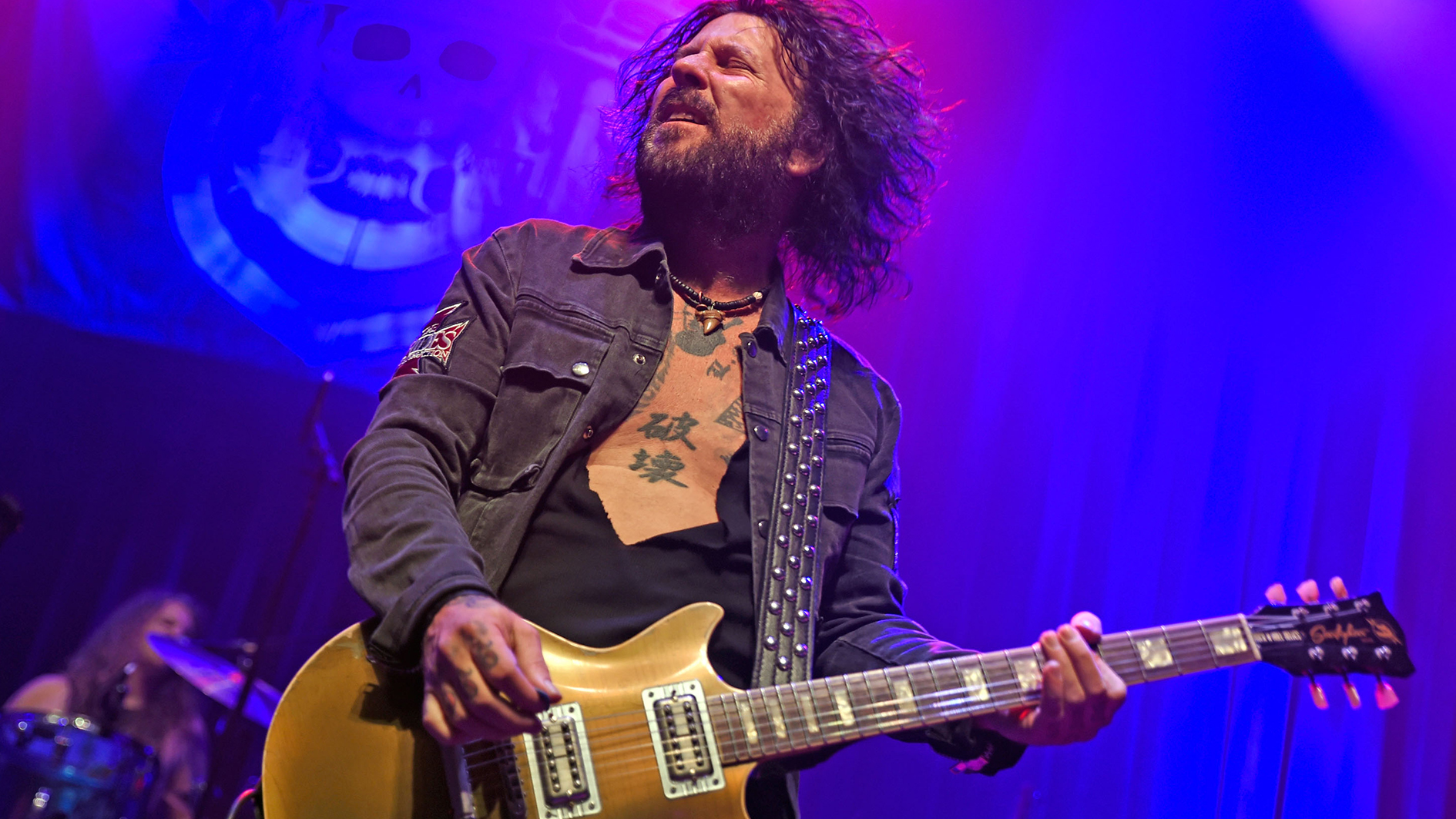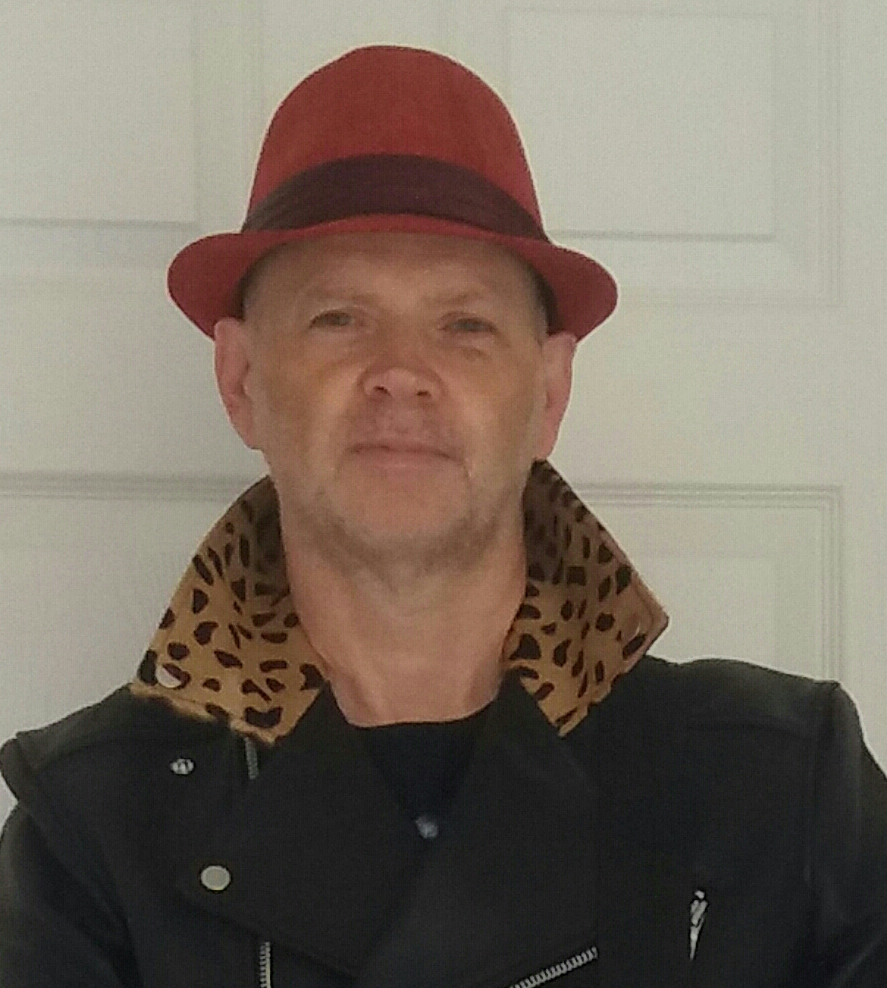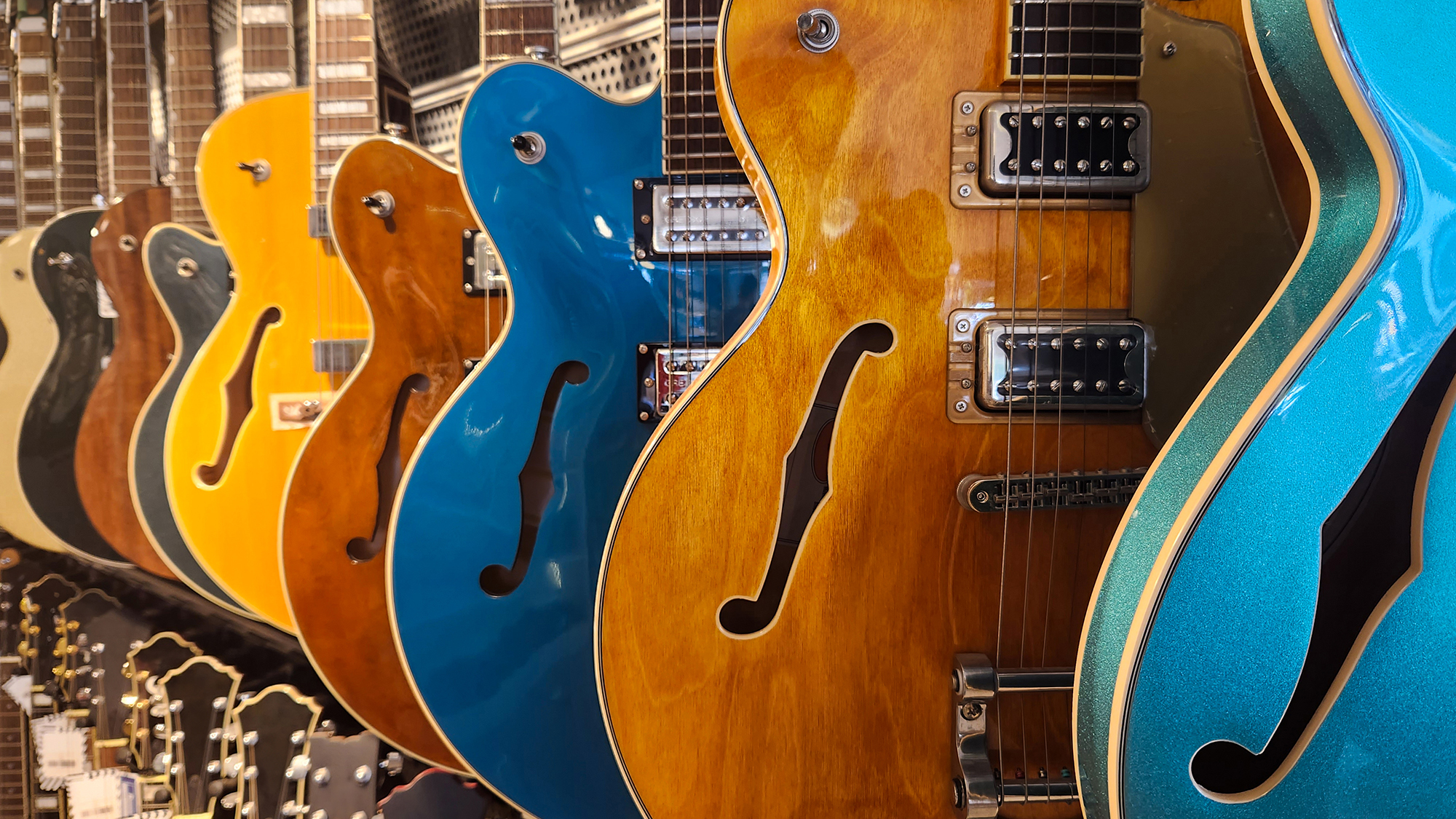Tracii Guns: “Everything I played on the new L.A. Guns record was recorded direct through a HeadRush – I didn’t use a mic’d-up amp for anything”
The hair metal survivor talks L.A. Guns' hard-riffing 2021 album Checkered Past, his Kramer Gunstar Voyager signature model and why he's content playing smaller venues over arenas

All the latest guitar news, interviews, lessons, reviews, deals and more, direct to your inbox!
You are now subscribed
Your newsletter sign-up was successful
L.A. Guns were the premier sleazemeisters of the hair metal era. Their self-titled 1988 debut album? An all-time classic!
A couple more albums down the line, however, the band began to splinter, with several different versions of L.A. Guns touring and making records. Guitarist Tracii Guns and singer Phil Lewis have had an on-and-off relationship, each of them leading various incarnations of the band over the years.
Fans rejoiced when Guns and Lewis reunited to release The Missing Peace in 2017; it was the strongest album either musician had recorded since the sophomore L.A. Guns album, 1989’s Cocked and Loaded. They topped that with The Devil You Know in 2019, and their newest album – 2021’s Checkered Past – is second only to their iconic debut release for raw energy and instant-hit, killer songs.
Guns recently took the time to discuss Checkered Past, some choice L.A. Guns history, his signature Kramer gear and more.
You must be incredibly pleased with Checkered Past, which is definitely one of L.A. Guns’ strongest albums.
“Yeah. Well, these days it is easier to make records, having full control over the creative process. We don’t have to settle for anything that isn’t exactly how we want it, without influence from producers or record companies. The fact that it is such a fun project to make an album now is as much a reason as any other to keep making records.”
It seems the band has been on a roll since you reunited with Phil a few years back. You seem as hungry as you were in 1988.
All the latest guitar news, interviews, lessons, reviews, deals and more, direct to your inbox!
“Almost hungrier! When you get a taste of real artistic satisfaction, that’s where the addiction to making music comes from. Everybody is so involved in the process. We’re lucky everybody in the band basically has the same vision for what L.A. Guns albums should sound like, although we do have different influences.”
Phil’s voice is in great shape. He sounds like he did 40 years ago. That said, there are some vocal harmonies that are quite different from previous L.A. Guns albums.
I think the harmonies really come from having the time, due to the pandemic, to sit with the music and let it develop a lot more than usual
“That’s the magic of that guy. Somehow he’s managed to really stay on top of his ability and his range. He has his own vocal producer, Mitch Davies, and they collaborate on the melodies and the lyrics. On this record, he’s singing in more of a middle register, which gives a great clarity to his voice.
“I think the harmonies really come from having the time, due to the pandemic, to sit with the music and let it develop a lot more than usual. Mitch and Phil have such a great creative bond, and they were constantly experimenting with different approaches. Phil really glues all the different styles on the album together because his voice is so distinctive.”
Cannonball from Checkered Past would’ve been right at home on the band's debut album. You get a distinctive, bright tone that really cuts through the mix.
“I agree – it definitely could have been on the first record. The songs on the last three albums that sound like that were all written by Johnny Martin, our bass player; he comes up with great riffs.
“Everything I played was recorded direct through a HeadRush; I didn’t use a mic’d-up amp for anything. You can get what you want much more quickly. I have a studio full of microphones and amps, but it gets tiresome to work through everything to get the sound I want.
“The HeadRush allows you to tweak the sound very easily. I use the JCM800 model; I used a Marshall JCM800 on pretty much every record I’ve cut, but this gets me the consistency I want when I’m recording.
It’s much harder to get the rock 'n' roll sound right with amp modelers than it is to get the more traditional metal sounds that they seem to be able to achieve quite easily
“I played my Kramer Gunstar Voyager signature guitar. It’s tuned down a half step, which brings a different flavor. The only reason it’s not on any other tracks on the album is that I didn’t get it in time, as I live in Denmark for half of the year, and I recorded most of the guitars at my home studio there.”
Knock Me Down has some very distinctive guitar sounds, too.
“The left-hand side is a Telecaster and the right side is a Les Paul. You can really hear the difference in the guitars; the HeadRush is so efficient that it really brings out the different sonic qualities of the two guitars.
“It gave me the confidence to know that I could get a great rock ’n’ roll sound from the unit, because it’s much harder to get that sound right than it is to get the more traditional metal sounds that modelers seem to be able to achieve quite easily.”
The solo on If It’s Over Now is epic. Was it worked out beforehand?
“Yes, I planned it. The luxury of the solo section there is that it’s a minor sixth progression, like the solo section on Stairway to Heaven. It allows you to move the solo with the chords, and actually it is quite easy to get a melancholy solo, as the chords already sound that way.
“I used a Tone Bender fuzz pedal on the solo, which gives it a timeless, whimsical sound. It was an experiment, as everything else was acoustic. I was thinking, ‘What would the Stones have done on this back in the day?’ I never normally say that a solo is so important that it completes the song, but I really do think that’s the case here.”
And speaking of Tone Benders, Living Right Now has a strong '60s vibe.
“Yeah – especially in the bass part, which has a real garage, Nuggets [the seminal garage-rock compilation produced by Lenny Kaye] feel. Ace Von Johnson, who also plays guitar in the band, brought that song in; he did most of the work with Johnny Martin and Adam Hamilton on drums, who really loves music from the '60s and '70s. The only thing I play on that song is the slide part. Ace plays the wah solo; it’s so great.”
Riley's L.A. Guns is a clown show – it makes no sense. If you don’t have enough confidence in yourself to do something of your own, it’s very bizarre
Meanwhile, Bad Luck Charm has a touch of Zep about it.
“That was a deliberate attempt at channelling 1968. [Laughs] I wanted to try to do a Yardbirds outtakes kind of thing. I’ve used that riff in different formations throughout my career, but it is basically [Led Zeppelin's] How Many More Times. [Laughs]
“You can twist and turn that riff in so many ways to get a different feel, and then the chords on the chorus are so Monkees. The song was a real experiment for me; I couldn’t have put any more reverb on the solo. That’s where I’m at these days, really looking for something a little different.”
For most people, the only viable version of L.A. Guns is the band with you and Phil. How do you feel about the Steve Riley version still being out there?
“It’s a clown show – it makes no sense. If you don’t have enough confidence in yourself to do something of your own, it’s very bizarre. I suppose it’s a special mentality.
“That’s the thing with Steve; he hasn’t ever created anything – he’s always joined someone else’s band. That’s always been his life preserver, I guess, but I don’t know the guy anymore. We sued him and he lost, so now when people ask what band he’s in he has to say 'Riley’s L.A. Guns', like 'Fred’s Led Zeppelin' or something.” [Laughs]
There’s something to be said, though, for making a little splash and carrying on doing that, rather than making a big splash at the start and then going away
Do you have any plans to do another Sunbomb album with Michael Sweet?
“The label asked me if I wanted to do something, and that record is very focused on a certain sound, which I love, but I don’t think I could top that record for that more metal approach.
“It took a couple of years to get it done, but I think I got that kind of soloing out of my system. I think it was great and the experiment worked, but I’d rather write a riff like Keith Richards right now.” [Laughs]
Your Kramer signature guitar, the Gunstar Voyager, is very affordable and has received very favorable reviews.
“That guitar was part of the plan to relaunch Kramer, so it had to look and sound appealing with great playability – and it needed to be affordable. There was a lot of thought put into it; it’s a really versatile guitar with a high-quality Floyd Rose. It’s definitely a metal machine. They made 500, and I think they’re all sold out. I’m not sure what we’ll do next.”
Would you agree that L.A. Guns often seem to be underrated?
"I think perhaps under-celebrated. There’s something to be said, though, for making a little splash and carrying on doing that, rather than making a big splash at the start and then going away.
I know what my capabilities are, and at this point, having been playing my whole life, I feel like my wife and kids are more important to me than being a guitar hero
“I’d love to be like AC/DC or something so I could have my own tour bus and take my family on it with all the meals catered, etc, but besides that, playing huge venues all the time would make me nervous. I’ll take a nice 3,500-seater any day.
“Managers have said to me in the past that they thought I sabotaged myself on purpose because I didn’t want to play those big venues, and they were probably right, but I really don’t give a shit. [Laughs] I love to play guitar, I know what my capabilities are, and at this point, having been playing my whole life, I feel like my wife and kids are more important to me than being a guitar hero.
“There was a time when I was very focused on being the best me that I could be, but nowadays I’m happy if someone is into rock ’n’ roll, they check out what I’ve done with L.A. Guns and they think, ‘Hey, that guy was pretty good.’”
- L.A. Guns' Checkered Past is out now via Frontiers Records.
Mark is a freelance writer with particular expertise in the fields of ‘70s glam, punk, rockabilly and classic ‘50s rock and roll. He sings and plays guitar in his own musical project, Star Studded Sham, which has been described as sounding like the hits of T. Rex and Slade as played by Johnny Thunders. He had several indie hits with his band, Private Sector and has worked with a host of UK punk luminaries. Mark also presents themed radio shows for Generating Steam Heat. He has just completed his first novel, The Bulletproof Truth, and is currently working on the sequel.

